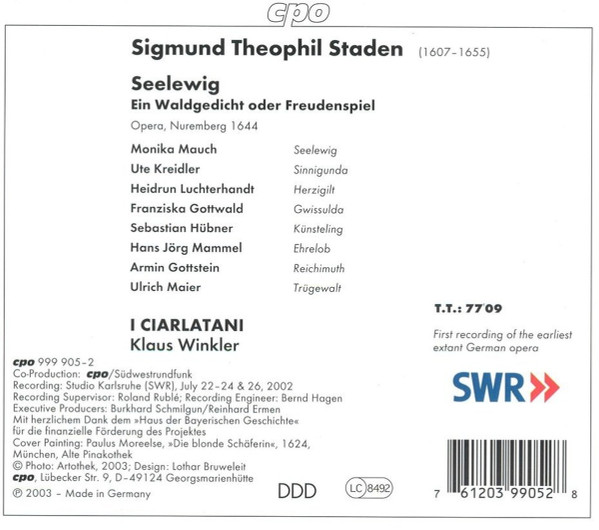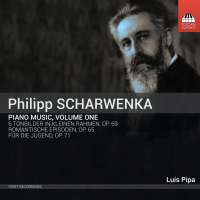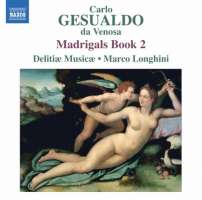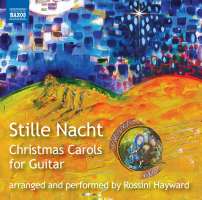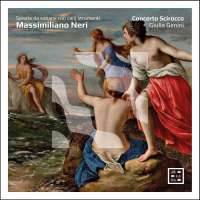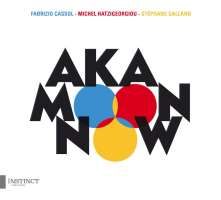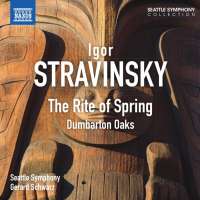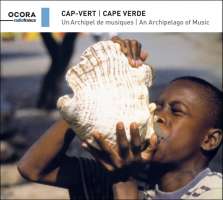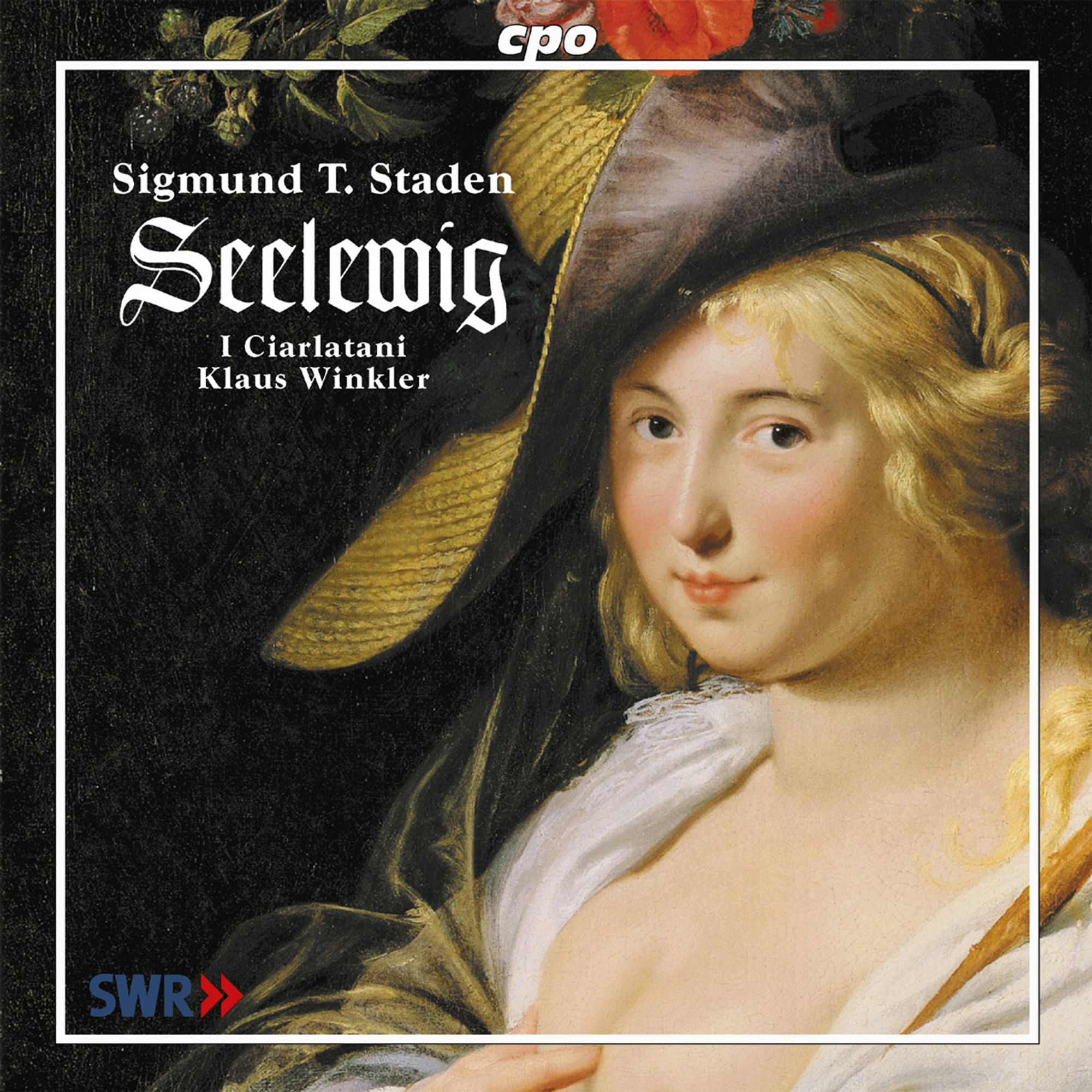
kompozytor
Staden, Sigmund Theophil
tytuł
STADEN: Selewing
wykonawcy
I Ciarlatani;
Winkler, Klaus
Winkler, Klaus
nr katalogowy
CPO 999905
opis
Nakład wyprzedany, ostatni egzemplarz Seelewig - The oldest surviving German opera
Actually it should be called: the spiritual forest poem or joy play, called "Seelewig", because under this title the text and notes appeared in Nuremberg in 1644 in the 4th volume of the "Frauenzimmer-Gesprächspiele" by Georg Philipp Harsdörffer. The music was composed by Sigmund Theophil Staden (1607-1655), one of Nuremberg's most respected musicians.
The two of them thus created the first work of German-language musical theater of which the text and notes have survived in their entirety - after the lost "Daphne" by Martin Opitz / Heinrich Schütz, therefore, the oldest surviving German opera. Of course, the "Welschen" models are unmistakable, but the will for emancipation, for the creation of a Gesamtkunstwerk, such as "has not yet come into print in Teutschland" is quite clear. The theme is simple and supra-temporal: the erring, eternal soul / nymph tempted by the world / earthly lust. Conscience and courageous reason, however, stand by her to resist the personified evil (Satanas / Satyr) and to attain heavenly bliss.
The ensemble I CIARLATANI with its colorful and versatile instruments and our eight soloists, above all the wonderful Monika Mauch as Seelewig, make this first-rate discovery also an early baroque feast. Klaus Winkler is the conductor.
Actually it should be called: the spiritual forest poem or joy play, called "Seelewig", because under this title the text and notes appeared in Nuremberg in 1644 in the 4th volume of the "Frauenzimmer-Gesprächspiele" by Georg Philipp Harsdörffer. The music was composed by Sigmund Theophil Staden (1607-1655), one of Nuremberg's most respected musicians.
The two of them thus created the first work of German-language musical theater of which the text and notes have survived in their entirety - after the lost "Daphne" by Martin Opitz / Heinrich Schütz, therefore, the oldest surviving German opera. Of course, the "Welschen" models are unmistakable, but the will for emancipation, for the creation of a Gesamtkunstwerk, such as "has not yet come into print in Teutschland" is quite clear. The theme is simple and supra-temporal: the erring, eternal soul / nymph tempted by the world / earthly lust. Conscience and courageous reason, however, stand by her to resist the personified evil (Satanas / Satyr) and to attain heavenly bliss.
The ensemble I CIARLATANI with its colorful and versatile instruments and our eight soloists, above all the wonderful Monika Mauch as Seelewig, make this first-rate discovery also an early baroque feast. Klaus Winkler is the conductor.
nośnik
CD
gatunek
Muzyka klasyczna
producent
CPO
data wydania
10-11-2004
EAN / kod kreskowy
761203990528

(Produkt nie został jeszcze oceniony)
cena 129,00 obniżona z 129,00 zł
lubProdukt dostepny w niewielkiej ilości.
Wysyłka w ciągu 3 dni roboczych
Darmowa wysyłka dla zamówień powyżej 300 zł!
Darmowy kurier dla zamówień powyżej 500 zł!
sprawdź koszty wysyłki